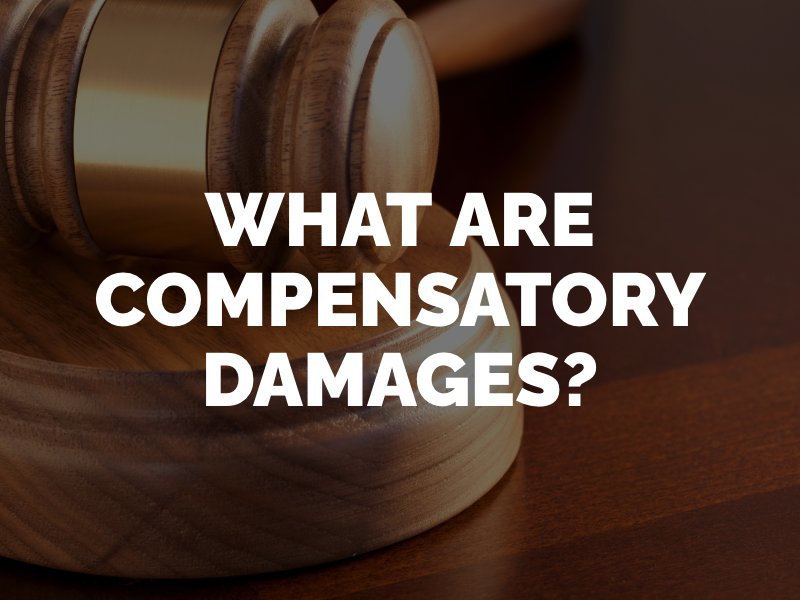What Are Compensatory Damages?
A damage award is an amount of financial compensation given to the injured party in an accident for someone else’s negligence or fault. It repays an injured party for the losses he or she sustained because of the defendant’s wrongdoing. In California, a damage award can have two parts: compensatory and punitive damages. All successful cases will end in compensatory damages, while only a few will have punitive damages. Ask a knowledgeable Los Angeles personal injury lawyer what compensatory damages may be available in your case.

What Are The Two Types Of Compensatory Damages?
The courts in California break compensatory damages down into two types: special and general. You could be eligible for compensation for one or both types during a personal injury lawsuit. Special damages refer to the expenses you incurred because of the accident and injury. They are the out-of-pocket costs and money spent on your recovery, repairs and medical treatments. Other names for special damage are economic, tangible and actual damages. General damages are the losses any reasonable plaintiff would have suffered in the same accident. They refer to noneconomic, intangible and estimated losses related to an accident.
Examples Of Special Damages
Special damages are actual damages you incurred in the accident. Actual damages intend to provide a monetary award to replace what was lost – nothing more. A judge or jury may order a defendant to reimburse you for any out-of-pocket costs from the accident and injury based on evidence such as medical bills and records, mechanic’s estimates, pay stubs, and receipts.
• Past and future medical expenses
• Disability accommodations
• Live-in care or nursing home care
• Domestic services
• Medical equipment
• Prescriptions
• Rehabilitation and therapies
• Lost earnings
• Damaged or destroyed property
• Transportation and travel costs
• Legal expenses and attorney’s fees
The money you spent on any aspect of your accident, personal injury or claim could become part of the economic damages you demand from the defendant. A lawyer in Southern California could help you prove the value of your special damages using available evidence and documentation. You or your lawyer will need to prove the losses you suffered have a real monetary value that a judge or jury can calculate.
Examples Of General Damages
General compensatory damages repay a victim for the intangible losses he or she suffered because of the defendant’s actions. They can refer to physical and/or psychological damages. The amount awarded in general damages is up to the jury during a personal injury lawsuit. The jury will review the facts of the case and award an amount deemed reasonable for the plaintiff’s personal suffering.
• Estimated future medical expenses
• Lost capacity to earn in the future
• Physical pain and suffering
• Emotional distress
• Mental anguish
• Psychological trauma
• Post-traumatic stress disorder
• Anxiety or depression
• Lost quality of life
• Lost enjoyment of life
• Grief and loss of consortium
• Inconvenience
• Humiliation
• Loss of opportunities
Most personal injury lawsuits seek special and general damages. It is less common, although not unseen, to only bring a claim for general damages. It might be appropriate for a plaintiff to only pursue noneconomic damages if he or she witnessed a traumatic accident, such as the death of a loved one, but was not injured in the accident. Most states permit the filing of claims for noneconomic damages alone.
Punitive Damages
The other type of damage award is punitive damages. While compensatory damages serve to compensate a victim for his or her losses, punitive damages serve to punish the defendant for his or her wrongdoing. Although uncommon, a judge may award punitive damages during a personal injury suit in California if he or she finds evidence of the defendant’s gross negligence, malice, fraud or intent to harm. A personal injury lawyer in LA can give you an accurate estimate of the full value of your claim.
